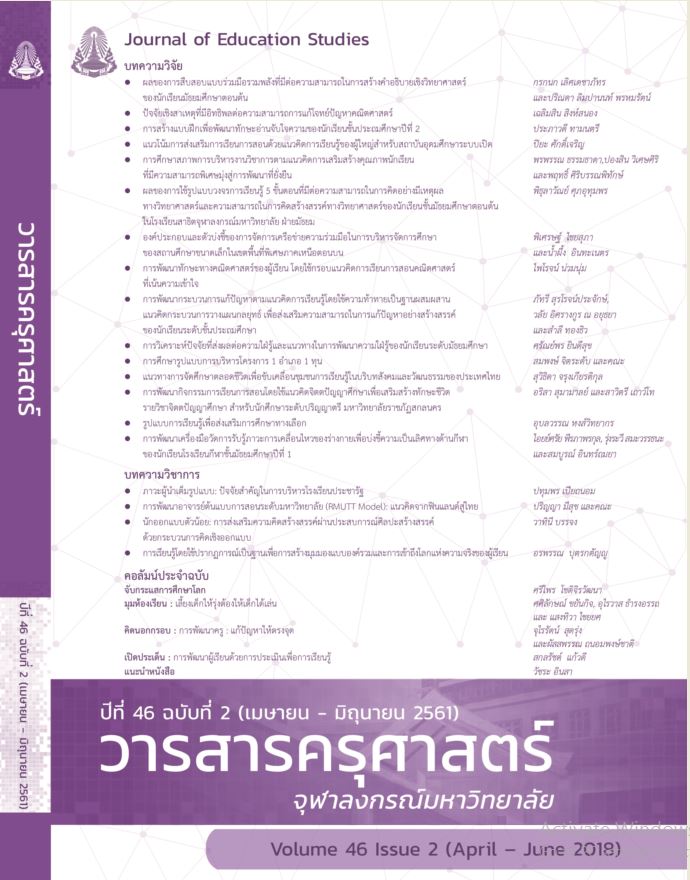รูปแบบการเรียนรู้เพื่อส่งเสริมการศึกษาทางเลือก
Keywords:
LEARNING MODEL, ALTERNATIVE EDUCATIONAbstract
Abstract
This research provides good practices and models of learning for enhancing alternative education. Survey research was utilized through questionnaire surveys among alternative education providers that had at least five years of relevant experience. A total of 106 surveys were completed from a total of 266 people (46.9%). Also, nine cases of alternative education providers were purposively selected by the experts. Interview and observation were taken in the field research. The survey and interview results were then discussed by a focus - group of nine experts within the field and deliberated in depth to establish the most ideal learning style to promote alternative education.The research findings were: (1) Good lessons of learning to promote alternative education are (1.1) guidelines for management of education including the following: (1.1.1) To generate learning, goals should develop the value and quality of the learner as education is an important tool for problem solving; (1.1.2) Learning management should consider the context and condition of the community of the learner; (1.1.3) Learning development should place importance on the development of the person/individual on the basis of self learning and integrated cooperation/collaboration within the educational sector. (1.2) Learning factors which promote alternative education are personnel with an understanding of holistic education, management skills and knowledge in the management of education in accordance with government regulations and the needs of the community. (2) Learning models to promote alternative education should highlight the principles, the processes and the outputs of learning for a complete life. (2.1) There three principles of alternative educational provision are: (2.1.1) Principles or goals in education management for one’s life, spirit, and wisdom. (2.1.2) A principle subject to consider is knowledge for life, managerial skills, and community based learning which use management skills to meet life goals. (2.1.3) Principle practices should be practical holistic and cooperative learning that leads toward a path in the future. (2.2) “To cultivate, to seek, to confront and to develop” are the important practices in the learning process. (2.3) Learning outputs are the students with responsibility for their owns actions and dutie. They will have the capacity to promote community growth and development by creating effective learning models for others. This is comparative to the Beehive Learning Model. Each learner/student (bee) has a designated path and duties to fulfill within the community. The hive itself is the center for nourishment and education and it is each person’s efforts which contribute to the success of the community.




